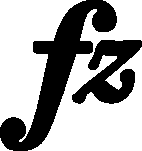



In the entire middle section of the Mazurka, there are no verbal indications (mainly dynamic) in A1 (→FE→EE) except for  in b. 76. It is also the accents that are marked differently than in GE and in the main text, based thereon, i.e. the marks are written regularly in the entire first eight-bar section (b. 60-67) and in its repetition (b. 77-83), which was not written out. In contrast, the markings of GE are significantly enriched and changed, to a certain extent. There is an indication that some, and probably all, of the changes were introduced by Chopin only just in the proofreading of GE1:
in b. 76. It is also the accents that are marked differently than in GE and in the main text, based thereon, i.e. the marks are written regularly in the entire first eight-bar section (b. 60-67) and in its repetition (b. 77-83), which was not written out. In contrast, the markings of GE are significantly enriched and changed, to a certain extent. There is an indication that some, and probably all, of the changes were introduced by Chopin only just in the proofreading of GE1:
- in b. 81-82 there are visible traces of removal of accents;
- cresc. in b. 62, had it been present in [A2], it should have also been included in b. 78, which was most probably not written out in that manuscript (just like in A1). Therefore, the difference between those bars suggests that the indication was added in the proofreading (naturally, an oversight of the engraver in b. 78 is also possible);
- the slight difference in the range of the
 hairpin between b. 66 and 82 also can indicate that the marks were written twice, which is rather unlikely in the case of [A2].
hairpin between b. 66 and 82 also can indicate that the marks were written twice, which is rather unlikely in the case of [A2].
The added indications offer a much fuller and detailed picture of the course of the music: each eight-bar sentence begins  (in b. 60, 68 and 76), followed by one (b. 74) or two crescendos – b. 62 and 65 as well as 78 (presumably) and 81. The cresc. and
(in b. 60, 68 and 76), followed by one (b. 74) or two crescendos – b. 62 and 65 as well as 78 (presumably) and 81. The cresc. and  markings in b. 65-66 and 81-82 replaced the accents on the 3rd beat of the bar present in A1. The addition of accents in b. 68-75 was most probably related to that: in A1, in the light of 8 accents written in b. 60-67, Chopin could have taken the subsequent ones for granted, yet in GE, where the marks were removed in b. 65-66 – already not.
markings in b. 65-66 and 81-82 replaced the accents on the 3rd beat of the bar present in A1. The addition of accents in b. 68-75 was most probably related to that: in A1, in the light of 8 accents written in b. 60-67, Chopin could have taken the subsequent ones for granted, yet in GE, where the marks were removed in b. 65-66 – already not.
category imprint: Differences between sources; Corrections & alterations
issues: Authentic corrections of GE
notation: Verbal indications
Back to note